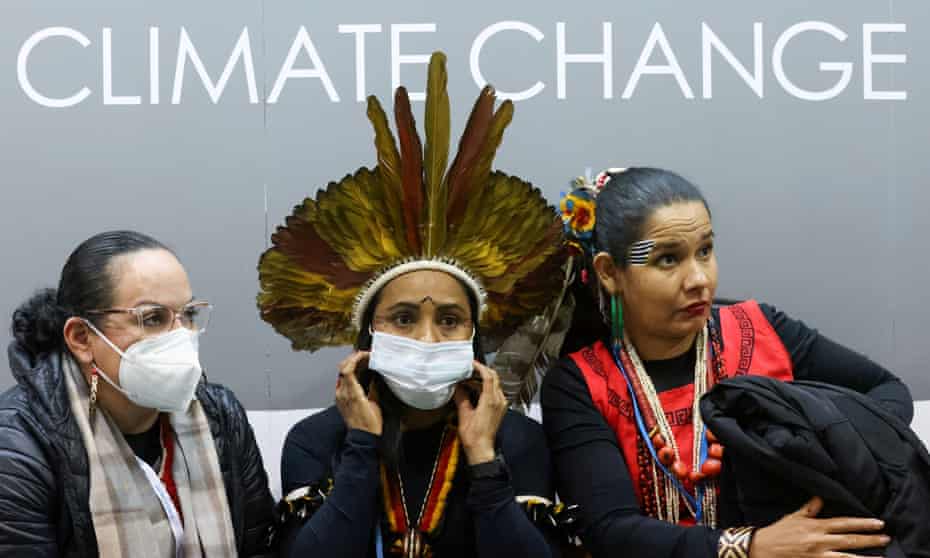Extract from The Guardian
Diverse participation leads to more robust solutions, but Cop26 shows we are still failing to include marginalised voices.

The global climate change agenda has met with not only political inaction, but resistance in the form of populist denialism that threatens to derail or undo existing efforts. For example, studies on “conservative white males” in the US and Norway have highlighted the connections between climate change denialism, patriarchal beliefs and rightwing nationalism.
People who directly benefit from the status quo are more likely to feel threatened by the kind of political, economic and societal overhaul that solutions to climate change require. Rather than an aberration, Donald Trump’s withdrawal in 2020 from the Paris agreement is arguably the conservative white male effect writ large.
However, women are still underrepresented in climate change negotiations, as shown in a UNFCCC secretariat report presented at Cop26. As well as finding that women remain in the minority and are less likely to lead a government delegation, it also analysed speaking times at selected Cop25 meetings to provide insights on active participation. It found that “men were overrepresented in terms of presence and tended to speak more than women”.
Women tend to do better in terms of representation and participation in the civil society sector. Research shows that “women occupy a larger share of NGO representatives to each Cop than their government delegate counterparts”. Allowing civil society groups to play a direct role in climate negotiations creates space for diverse perspectives and forms of expertise.
This is important because when decision-making processes incorporate gender perspectives, and meaningful participation by women, solutions are often more comprehensive and durable. One study found female representation in national parliaments across 91 countries correlates with more stringent climate change policies and lower carbon emissions. This reinforces evidence that gender equality improves societal outcomes in relation to the environment and peace-building efforts. The point here is not that female leaders are necessarily naturally pro-environment, but rather that female participation indicates a better quality of political representation.
I have found in my own recent research that the lack of diversity at UN climate summits is both a cause and effect of the “securitisation” and “scientisation” of climate change. Dr Sherilyn MacGregor of the University of Manchester argues that climate change has been represented both as a scientific problem and as a threat to security. Science and security have been traditionally male domains, where knowledge production and validation have been seen as the territory of a very narrow and male-centric set of “knowers”. For instance, the participation of female scientists in the Intergovernmental Panel on Climate Change (IPCC) – the authoritative international body responsible for assessment on all scientific information relating to climate change – has gradually increased but remains low, with women making up just 32% of authors of a recent report.
Unless the way our global leaders frame the climate crisis changes, we will continue to force women’s participation to fit within very rigid sets of expertise, procedures and diplomatic styles that do not lend themselves to creating radical global and systemic change. And we will continue to witness global leaders lagging far behind the monumental task of ensuring humanity’s survival.
Dr Maria Tanyag is a research fellow and lecturer in international relations at the Australian National University
No comments:
Post a Comment